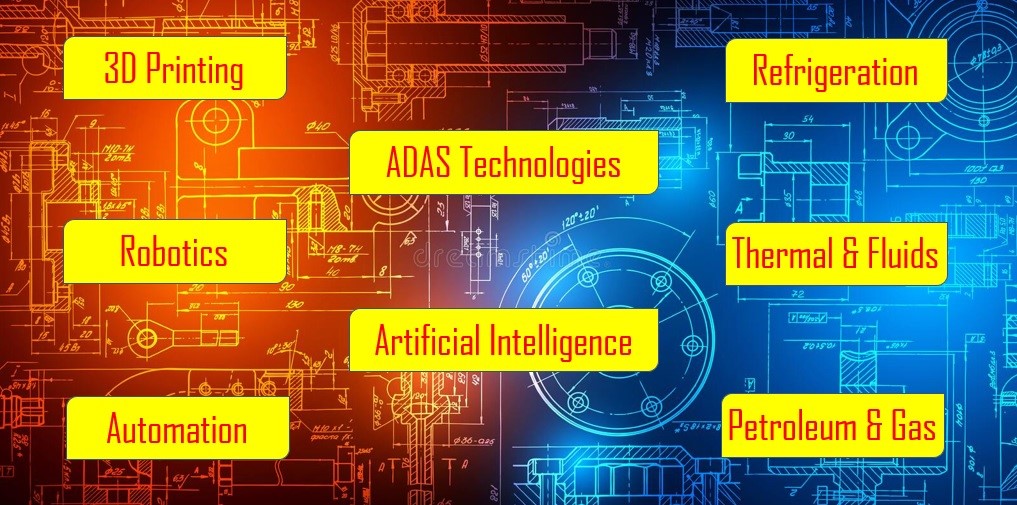PO 1: Engineering knowledge: Apply knowledge of mathematics, science, engineering fundamentals, and an engineering specialization to the solution of complete engineering problems.
PO 2: Problem Analysis: Identify, formulate, research literature, and analyse complete engineering problems reaching substantiated conclusions using the first principle of mathematics, natural sciences, and engineering sciences.
PO 3: Design/Development of solutions: Design solution for complex engineering problems and design systems components or processes that meet specified needs with appropriate consideration for public health and safety, cultural, societal, and environmental considerations.
PO 4: Conduction investigations of complex problems: Using research-based knowledge and research methods including design of experiments, analysis, and interpretation of data synthesis of the information to provide a valid conclusion.
PO 5: Modern tool usage: Create, select, and apply appropriate techniques, resources, and modern engineering and IT tools including prediction and modelling to complex engineering activities with an understanding of the limitations.
PO 6: The Engineering and Society: Apply logical reasoning informed by the contextual knowledge to assess societal, health, safety, legal and cultural issues, and the consequent responsibilities relevant to professional engineering practice./p>
PO 7: Environmental and sustainability: Understand the impact of professional engineering solutions in societal and environmental contexts and demonstrate knowledge of and need for sustainable development.
PO 8: Ethics: Apply ethical principles and commit to professional ethics and responsibilities and norms of engineering practice.
PO 9: Individual and team work: Function effectively as an individual, and as a member or leader in diverse teams and multi-disciplinary settings.
PO 10: Communication: Communicate effectively on complex engineering activities with the engineering community and with society at large, such as being able to comprehend and write effective reports and design documents, make effective presentations, and give and receive clear instructions.
PO 11: Project management and Finance: Demonstrate knowledge and understanding of engineering and management principles and apply these to one’s work as a member and leader in a team, to manage projects in multi-disciplinary environments.
PO 12: Life-long-learning: Recognize the need for and have the preparation and ability to engage in independent and lifelong learning in the broadest context of technological change.




